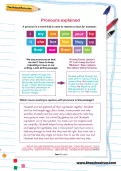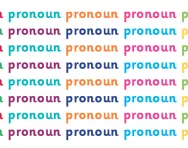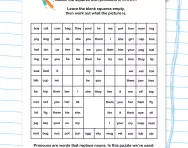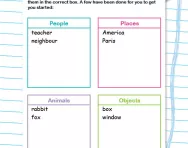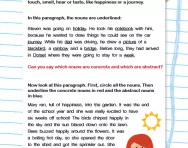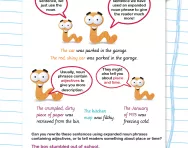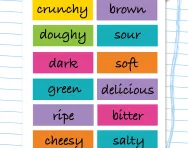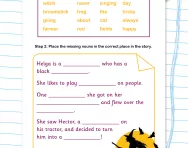Important update from TheSchoolRun
For the past 13 years, TheSchoolRun has been run by a small team of mums working from home, dedicated to providing quality educational resources to primary school parents. Unfortunately, rising supplier costs and falling revenue have made it impossible for us to continue operating, and we’ve had to make the difficult decision to close. The good news: We’ve arranged for another educational provider to take over many of our resources. These will be hosted on a new portal, where the content will be updated and expanded to support your child’s learning.
What this means for subscribers:
- Your subscription is still active, and for now, you can keep using the website as normal — just log in with your usual details to access all our articles and resources*.
- In a few months, all resources will move to the new portal. You’ll continue to have access there until your subscription ends. We’ll send you full details nearer the time.
- As a thank you for your support, we’ll also be sending you 16 primary school eBooks (worth £108.84) to download and keep.
A few changes to be aware of:
- The Learning Journey weekly email has ended, but your child’s plan will still be updated on your dashboard each Monday. Just log in to see the recommended worksheets.
- The 11+ weekly emails have now ended. We sent you all the remaining emails in the series at the end of March — please check your inbox (and spam folder) if you haven’t seen them. You can also follow the full programme here: 11+ Learning Journey.
If you have any questions, please contact us at [email protected]. Thank you for being part of our journey it’s been a privilege to support your family’s learning.
*If you need to reset your password, it will still work as usual. Please check your spam folder if the reset email doesn’t appear in your inbox.
Pronouns explained
What are pronouns in Year 6 English?
A pronoun is a word that takes the place of a noun in a sentence. Pronouns are used to avoid repeating the same noun over and over again, making our writing and speech clearer and more concise.
What are some examples of pronouns?
Look at the following sentence:
Sarah went to Sarah's house because Sarah forgot Sarah's keys.
How could we add pronouns to make the sentence clearer and more concise?
Sarah went to her house because she forgot her keys.
Here are some common examples of pronouns:
- Personal pronouns: he, she, it, they, we, you, I
- Possessive pronouns: his, hers, its, theirs, ours, yours, mine
- Demonstrative pronouns: this, that, these, those
- Relative pronouns: who, whom, which, that
How will this Year 6 pronouns worksheet help your child?
This teacher-made activity is free and easy to download and will help build your child's confidence when using pronouns. It is something they can refer to time and time again as it includes a simple explanation and several examples, as well as a quick activity at the end.
Looking for more help with Year 6 English? Try our hub page.
Looking for another fun activity? Try our Clauses in a sentence worksheet.
